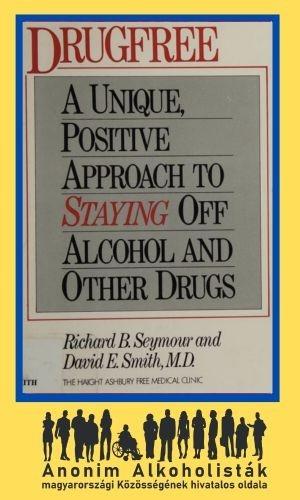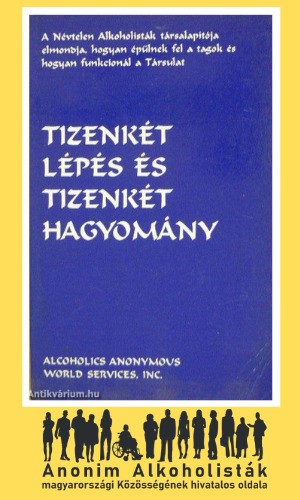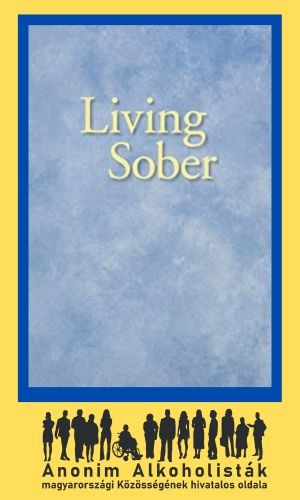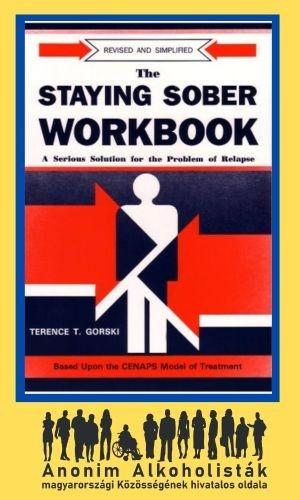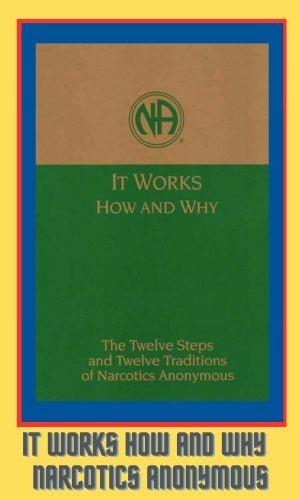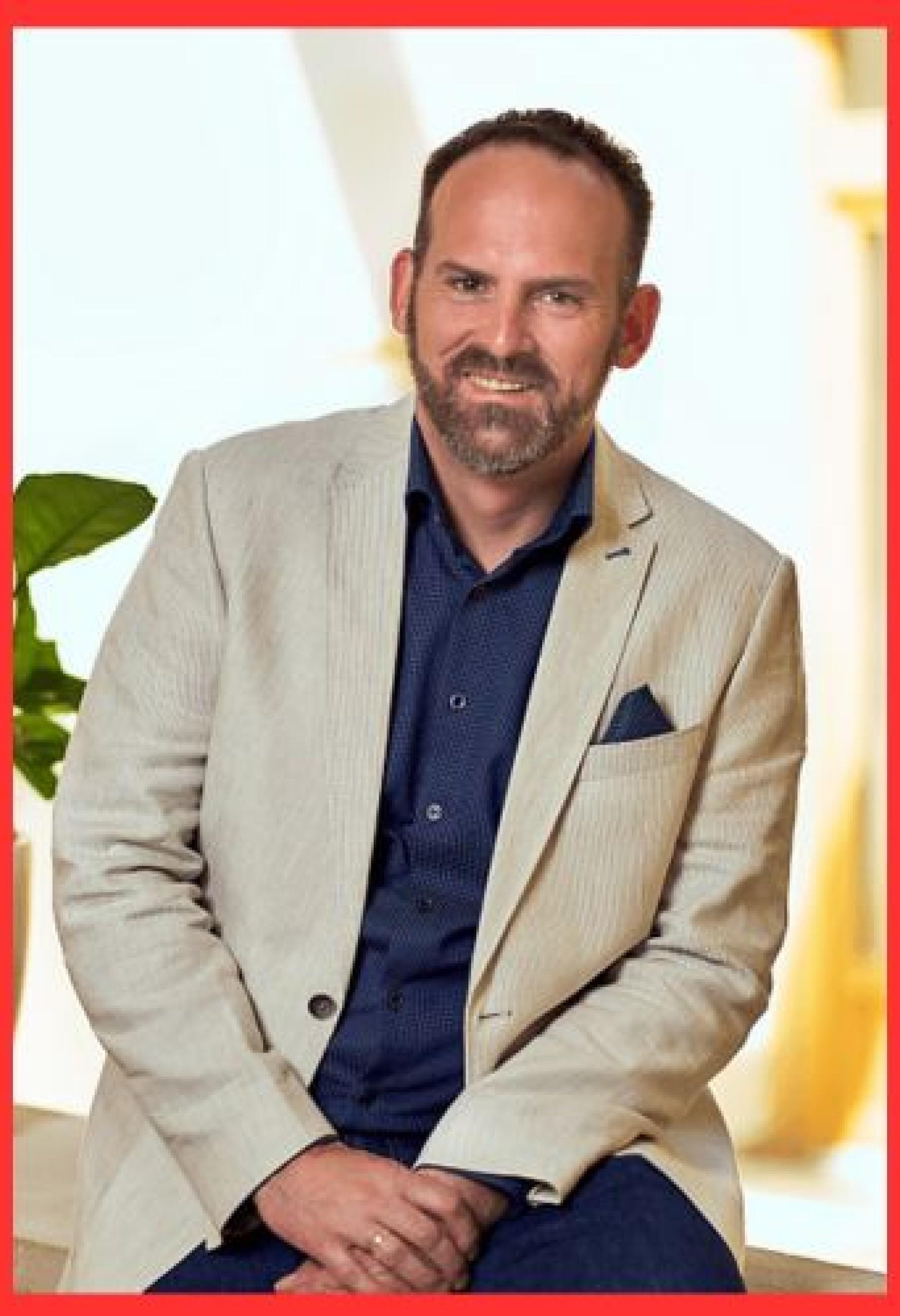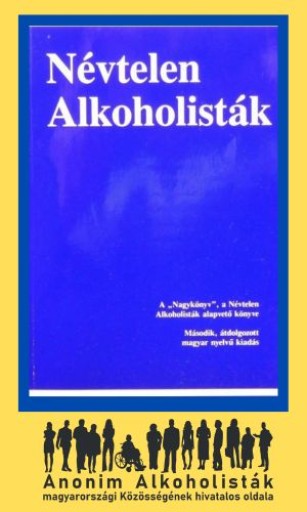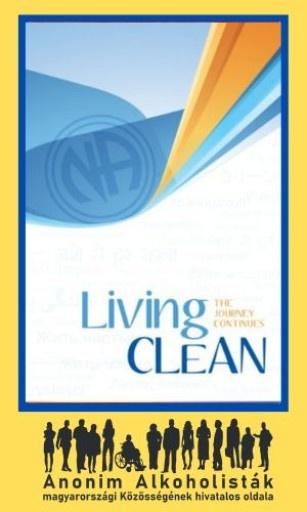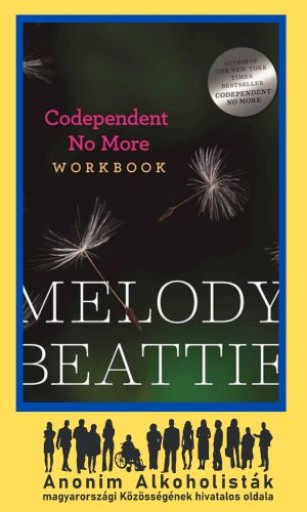Addiction and family - Taking stock of the exit options
(Can we do something for each other?)
Admitting inertia
It is not an easy step to take. In fact, it is perhaps the most difficult step, but also the most important one in starting the healing process! It is also the last thing we admit in our everyday lives. Until we give up our efforts to change the other, we will inevitably suffer.
"It takes great courage to face the true nature of alcoholism (or drug addiction) and admit that we have failed: we have failed to change [the other person], we have failed to make them see better. If we can accept what has been obvious for so long - that periods of peace and harmony bring only temporary relief in an increasingly strained family life - then it is time to see how we can improve our own situation, not by looking to our partner (family member) but to ourselves for change." (Burr Alison: Alcoholics in the family/ p.53)
It's easier to blame the addict for every problem in the family, but if we take time to calm down and reflect, we have to admit that we make mistakes too.
The first step is to understand your own illness and how you are affected. Once the healing process is underway, once we are free from our dependence on the other person, we can be more balanced and contented despite difficult circumstances. (Even if the other person does not want to admit their illness and does not want to heal.)
Surprisingly, according to Hans Klein, it is at the point when the relative is found to be the one who needs to change his or her behaviour and declares that he or she has not been drinking, not the one who needs to change, that the resistance is strongest. In the course of these conversations, it often turns out that the relative is suffering terribly and insists that their addicted family member do something, or that someone else is making them do something, but they refuse to change their own behaviour. Whatever the reason, every family member needs to understand that unless they are willing to change, things will stay the same. Of course, the alcoholic may want to quit years later, independently of the family member, and succeed, but it is much harder.
We can't change anything else, but changing our own behaviour can have a big impact on our family member.
Getting to know and better understand each other's illness
It is very important to be informed about alcohol, drug and substance abuse, because this will help us to understand our partner or family member much better. It will help us to see through the psychological, physical and social distortions that the disease brings about. It is important, for example, to understand the patient's self-protection mechanisms and the fact that, despite all appearances, he or she is also suffering and probably has a serious guilt complex. A Reformed pastor made the following statement:
"An alcoholic goes through much more serious crises of conscience than a non-alcoholic. He has a much higher level of self-blame, self-blame. He sees everything - or mostly everything - that he has done. In most cases, it's because his conscience is so bad that he's got a guilty conscience. Because he cannot get rid of it. I find it problematic when only the conscience works in a person, but without mercy. So he digs around in himself, he feels guilty, without grace being thrown on him; and the devil plays on the conscience, on the guilt, as he pleases." (Teri Szűcs: What is wonderful? - p. 89)
The worst thing we can do is to do nothing. Many people suffer and pass the disease because they dare not take action. We can really help effectively if we know what is going on in the patient, if we see and understand, not condemn, their condition. Anyone who has lived with an alcoholic will have heard him or her say, "I am a wreck... I don't deserve you... I'm sorry I hurt you so much..." We usually don't take these words seriously, because the next minute he is often teasing and aggressive, even though such expressions give us an insight into the struggles within him.
Forgiveness
Forgiveness is a very important step towards the addict. How can you love someone who (apparently) cannot love and is as unworthy of love as an alcoholic or a drug addict? We cannot do it by ourselves, we need help.
The good news is that love and forgiveness can be learned, if we recognise that we need to be taught, and that we have perspectives to look forward to.
"We must know that to love is above all not only an emotion, but also an action. To love someone, you must first of all want to love. So love does not just happen by itself, it is the result of a choice. We decide for or against love." (Hunt, Jim and Cyndy, Hill, Robert Allen: Winning Together - Pastoral Counseling Advice for an Alcoholic Believer's Spouse/35 p.36)
But we also need to know that love and forgiveness can be misunderstood concepts that can destroy whole families. Forgiveness does not mean serving the other person over and over again, while your own life, or the life of your child or children, is completely ruined. We are also responsible for ourselves and other relatives. How can true love for a sick family member be expressed?
A loving confrontation
Instead of a persecutory attitude, it can be a great help. Criticising the addict's behaviour over and over again and questioning his or her personality only increases his or her sense of guilt instead of building a positive sense of self. One of the sad consequences of alcoholism is that the patient does not want to talk about his addiction. Admitting it, taking him to task for his illness, persecuting him has done nothing to help. But we cannot avoid the problem. We cannot put up with and tolerate in the name of love, while everyone in the family is destroyed. Love does not silence evil, but helps us to confront it. Confrontation is always painful for the one who needs to be confronted, which is why we must do it with love. If we are driven to do it for the sake of the other, we will seek to deliver the truth in the most appropriate way. We need to let them know that we are bothered by their drinking/abusing; that it is very difficult to be under the same roof with them, their behaviour changes and they are a bad influence on the rest of the family, they spend a lot of money that should be spent, they ruin our relationship etc. We also need to let them know that we need them, not when they are addicted but when they are sober.
It may help if this confrontation takes place in a setting where all those who are important to the addict are present. The more of these people present, the harder it will be for him to find excuses.
Not accepting the lies
The fact is that addiction is accompanied by misinformation, misrepresentation, misleading or outright lying. As the patient's addiction progresses, he or she becomes more and more adept at this unfortunate behaviour. When you notice that the person is trying to mislead you or deceive you, it is important to interrupt the conversation and tell them that you know they are not telling the truth and are trying to mislead you. If he then tells the truth, listen to him. Allow him to express his feelings and thoughts openly, but confront him when he is operating his illness.
Promoting a positive self-image
If we criticise his behaviour over and over again and question his personality, we only increase his already existing guilt instead of building a positive sense of self. Demand to talk to him, share family things, ask him how he is, what is bothering him. If he has something to say, listen to it, even if you know what he is going to say. If he vows not to drink from tomorrow, don't tell him off harshly, but say it with love: believe that he means it, that he won't drink from tomorrow, but he can't stop because he is ill and he promised the same last time, without any results. Let's not blame him for it, but tell him that it's part of his illness. We know he wants to, but he can't stop drinking. However, let's not fall into the role of the patsy either.
It is also important to notice and appreciate the good things in life. If all you experience is scorn, scolding and other negative things, you will be even more bitter.
If you take any positive steps towards your recovery, we should try to encourage and help you.
Remembering your old self (not identifying with your illness)
It is easy to make the mistake of identifying the addict with his or her actions or illness. We need to be aware that what we stigmatise is usually the behaviour we don't like, and instead of looking for the positives, we only see the flaws and how bad the situation is for us. It's important to remember the good qualities that we have come to like about him or her, or that we love him or her as a family member. They are still there, they are just obscured by his addictive behaviour and if his illness deepens he may lose them. A sad mistake often made by family members is to complain constantly about their relatives, their partner, no longer having a good word to say, and to make themselves out to be martyrs or heroes who stand by them in spite of the other's evil behaviour; this makes more enemies of the patient, and if they do this to the addict's ears, they greatly hurt his self-esteem and deepen his guilt.
Release
It is possible that, despite our helpful attitude, the situation at home will not change. The addict may also face his own illness with the knowledge that he can always rely on his relatives to take over his responsibilities, sort out his messes, pay his debts, hide his illness and protect him from the scorn of the outside world. Many people (perhaps most Christians) object to the idea that an alcoholic must be let go, left alone, to face up to what his illness is doing to him. But in the spirit of love we must do this. If we always bear the consequences of the addict's illness, then, to use a simple example, we are acting as if we were willing to bear the symptoms of a cancer patient's illness, and the patient would only realise what is real when he is in a serious stage or perhaps just before he dies. As we have already said, many people put up with it for a long time and then say they have had enough and leave or divorce their partner, when they could have taken steps earlier to make the addict face the consequences of their illness. There is a big difference between letting go and leaving. However, this needs to be explained, because sometimes letting go also means abandonment.
The point of remission is for the patient to understand that there is no one to take responsibility for their illness any more, but that they have to do it on their own. Abandonment is different in that we no longer care about the person who has been abandoned, we become indifferent to them, we turn our backs on them. This behaviour no longer has the effect of letting go, because we are making the patient feel that we are fed up with him and his illness. Hans Klein's advice is very important:
"... it's effective to let go, because when you're left alone, you understand that you're no longer being taken care of, or it's time to make a choice: either let alcohol destroy you or take responsibility for your own life. In the case of alcoholism, there is a danger that inadequately provided help will prevent the patient from having that experience. Oddly enough, some people believe that this is exactly the kind of situation in which they should be helping these unfortunate people. But as good as they are, their intention is wrong, because the patient only wants to be helped when they understand that they are responsible for their illness and cannot cope on their own." (Klein, Hans: Alcohol dependence and family care, p. 68)
Request help
It is very important not to try to do it on your own, as there are many ways to ask for help. Family groups for relatives of addicts are highly recommended. Here we can meet people who know our problems, because they also have relatives with addiction. The most successful self-help group is Al-anon (Family Group), which is linked in principle to Alcoholics Anonymous and works closely with Alateen (Youth Self-Help Group) and ACA (Adult Children of Alcoholics). In addition, the Nar-Anon family group for family members of drug addicts is available on the Internet and is still only marginally available in our country (http: www.nar-anon.org). If we tell our family member that we have gone to one of these sessions or counselling, they will probably resent us, but it is important to express that we are suffering because of their illness and they need to see that we cannot continue to carry this situation for them and cannot handle it alone. As we have already discussed, as long as the family remains silent and does not speak out against the drinking or substance abuse, the addict will not realise that the situation is serious, as he is using to feel good. It is only when it is made clear that it is no longer possible to have a relationship with the addict that he or she begins to think differently about substance abuse. This is why it is important to talk openly about the situation. In Al-alon, for example, we will first of all face ourselves and the fact that we need to heal ourselves. Here too, the basic principle is to admit that we are powerless over alcohol and that we can change through help from outside ourselves.
Here we can learn what it means to let someone go, but not to give up on them. We can also learn to face ourselves. Experience has shown that if we change our behaviour, if we point out through our behaviour that substance abuse is the other person's disease, they will certainly not be indifferent. He or she may drink/use more at first, and this may be interpreted by many as letting down a weak person, and we may be tempted to reenter the addict's game. I quote again the words of Hans Klein:
"If the relative no longer adapts to the patient, something will soon change. This does not mean, of course, that he or she stops caring for the patient, but starts to listen to him or herself. The more he or she manages to ignore the alcoholic and his or her negative behaviour, the sooner he or she will be distracted and drawn back to the idea of his or her illness. The disease will then no longer be an interest for him, for which he receives a lot of attention, but will cause him more and more suffering. Understandably, the alcoholic does not allow this to happen immediately. He resists first and knows from past experience that he usually succeeds in convincing his partner. Therefore, the partner needs a great deal of strength and consistency not to be influenced in his new behaviour... This is certainly impossible without "relapses" into the old behaviour, but if he can remain consistent, there is a high probability that his resolve will be crowned with success." (Klein, p. 77)
It is therefore worth persevering, because our behaviour does not mean that we have abandoned him, because we care about his fate, and if we have offered him treatment or he knows that there is a treatment option, he will probably change his mind and face his illness. Here is one recovering alcoholic's testimony about the impact of his wife's change of attitude:
"If you want to ruin a drunkard's fun, introduce his spouse to Alanon. Pauline had changed her approach in three ways, which was maddening: (1) Although she used to pour my booze down the drain, she had stopped doing so and made no attempt to stop drinking. (2) On Mondays, I always asked him to phone work and tell them I had a cold. He used to do this all the time, but after he went to Alanon, he just smiled and said, "No, you'll have to take care of that yourself now." (3) He seemed much calmer, more collected. Before, I'd barely got home from drinking with my mates and I was immediately looking for an excuse to go out again. I'd just start arguing with Pauline and then I'd say, "All right, if you're going to be like that, I'm going to leave." After she got involved in this Alanon thing, instead of trying to keep me at home, she just smiled and said, "Goodbye, I have to go to a meeting." (Dobson, Dr.James: Tough Love - Hope for Families in Crisis/ pp.221-222)
Details of the self-help groups available for family members, their publications and meeting locations can be found on the following websites:
- al-anon.hu
- aca.hu
- tarsfuggok.hu
Understanding and accepting the healing process
As with all serious illnesses, we need to talk about the recovery process for alcohol and drug addiction. Just as one does not become addicted in a week or two, one does not recover in a week. Even if you seek and receive help, you may not leave rehab truly cured. If the patient only gets clean of the substance in their system, but does not recognise that they became addicted because they "failed to cure their personality" and do not seek further change, they are likely to relapse. These people are called "dry alcoholics". They no longer drink, but their way of thinking and their way of life still has the personality traits of an alcoholic:
"Alcoholics think differently from healthy, normal people... This change in thinking can be recognized even if you don't have a drop of alcohol in you... and even if you haven't had the drug for years, but your thinking hasn't changed... because your behaviour is shaped by your thinking, as long as it doesn't change, there is no real change in your lifestyle."
(Szikszay-Tóth: Deviant alcoholology/11.p.)
Learning to face problems and difficulties in life and to take responsibility for your actions is not easy, especially for an alcoholic. It takes time to learn to do this, because you may not have come this far in your whole life. Professional help is therefore very important alongside detoxification. We believe that addicts who can start on the road to true sobriety are those who become part of a community where they can openly discuss common problems and ask each other for help. What could be more powerful than a group where they can meet fellow addicts? This is why more and more people are offering Alcoholics Anonymous or Narcotics Anonymous, whose programme is based on serious and deep introspection, confrontation with oneself, admission of helplessness and faith in a higher Power. Those who do not make it this far are at greater risk, which is why relapse cannot be ruled out, but those who have not yet learned that they are facing an illness need to be re-confronted in order to accept healing and recovery.
However, recovery is a long process for us addicts as family members, and part of recovery is falling back into the role of the addict's life play and finding it difficult to find our own identity, because we are used to it dissolving in that of others. If we are not afraid to face ourselves and accept the help that is not within us, we can start on the road to recovery. In doing so, we can do the most for the addict next to us.


















